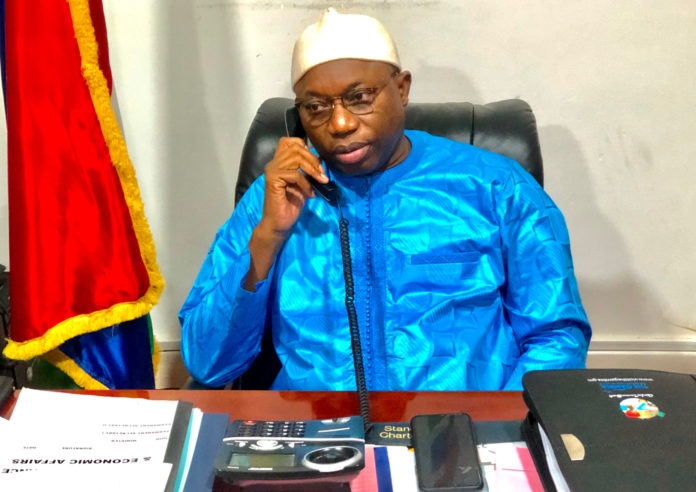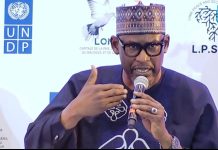Quadrangle, Banjul, 15th May 2020 – The Honourable Minister of Finance and Economic Affairs of the Republic of The Gambia, Hon. Mambury Njie, in his capacity as the current Chairman of the Council of Ministers of the Organisation of African Caribbean and Pacific States (OACPS), on Wednesday, 13th May 2020 held an extensive telephone conversation with Secretary-General of the Organisation, H.E. Georges Rebelo Pinto Chikoti on the COVID19 Emergency Support to member countries and the status of the ACP-EU Post Cotonou Agreement negotiations.
Minister Njie, who assumed the Chairmanship of the OACPS Council of Ministers in February 2020, was informed that the organization allocated 25 million euros to members states, through the World Health Organisation, as emergency support to combat COVID-19. The OACPS is also reviewing the balance of resources from the intra-ACP envelope to provide post-COVID-19 support to member states.
The Minister was also updated on the ongoing restructuring of the Secretariat and appointment of senior staff.
Honorable Njie used the opportunity to congratulate the new Secretary-General on his appointment and the association’s adoption of the Revised Georgetown Agreement, which seeks to reposition the OACPS into an effective global player committed to multilateralism and the development goals of its member states. The Minister assured the Secretary-General of The Gambia’s continued support to the OACPS.
The African, Caribbean, and Pacific Group of States (ACP) was established by the Georgetown Agreement in 1975. It is composed of 79 African, Caribbean, and Pacific states, all of which, save Cuba, are signatories to the Cotonou Agreement, also known as the “ACP-EC Partnership Agreement”.
The ACP, renamed Organisation of African, Caribbean and Pacific States (OACPS) following the adoption of the Revised Georgetown Agreement, aims to support the sustainable development of Member-States and their gradual integration into the global economy, which entails making poverty reduction a matter of priority and establishing a new, fairer, and more equitable world order.
There are 48 countries from Sub-Saharan Africa, 16 from the Caribbean, and 15 from the Pacific.


















